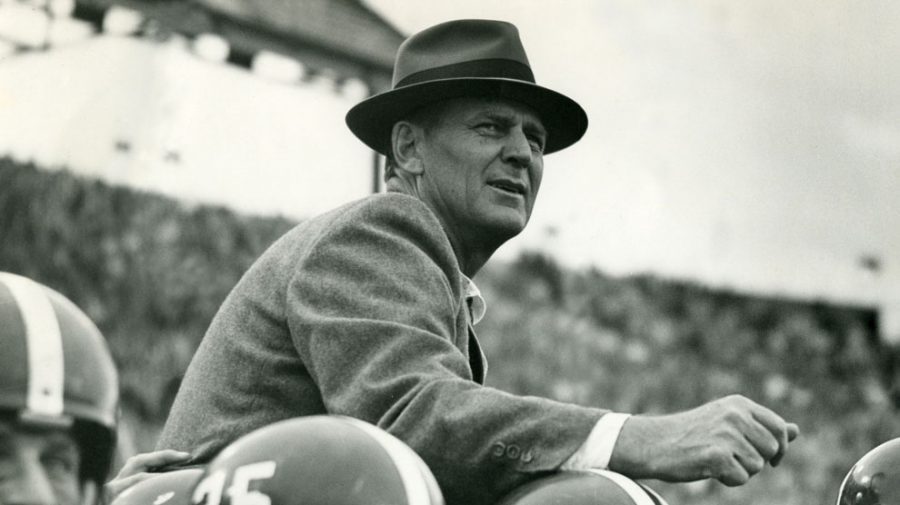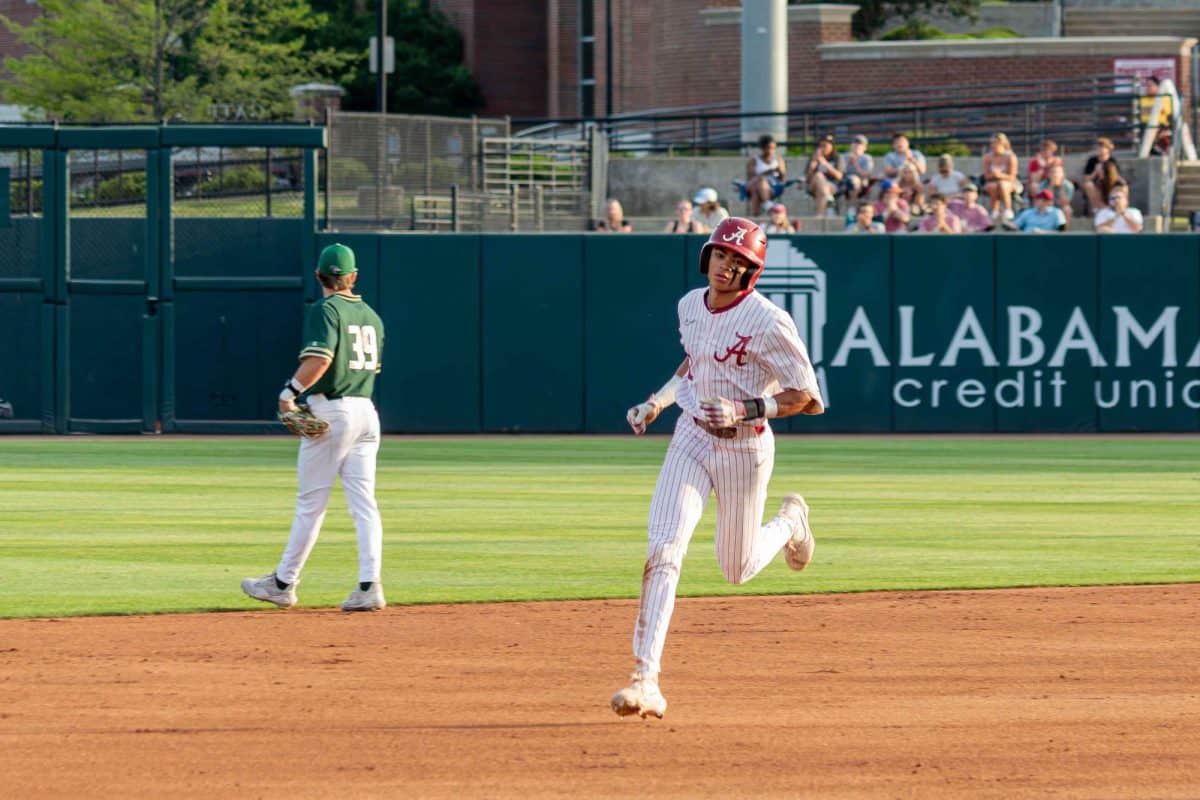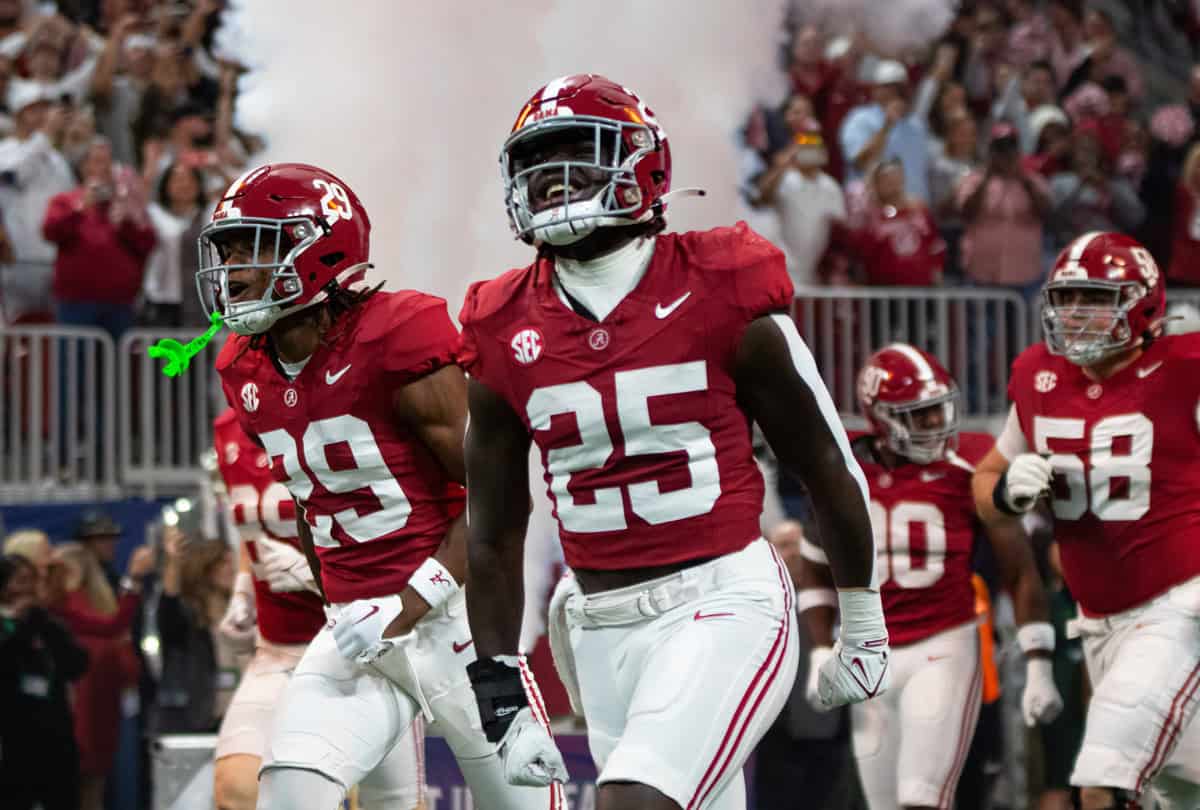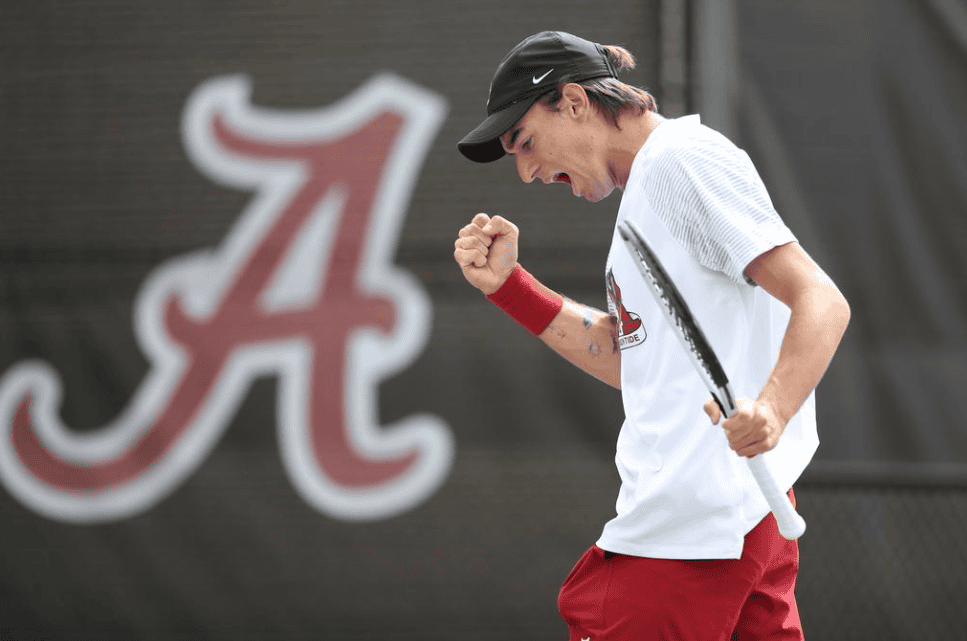To some, he was Coach. To others he was a co-worker. But for everyone who knew or met Alabama’s legendary football coach, Paul “Bear” Bryant, he made a lasting impression.
“He was a living legend,” said Patricia Hall, an Alabama Sports Information Director from 1975-1976. “He wasn’t just a legend after he died. He commanded all kind of respect. I’ve been around a while, and I’ve met a lot of interesting people through the years, but I’ve never met anyone like Coach Bryant. I’ve never seen a human being have that kind of impact on other people.”
Bryant is best known to sports fans nationwide as “The Bear,” or even “Bear Bryant.” But to those that knew him best, he was never called “The Bear.”
“To us in the athletic family, he was always called ‘Coach Bryant,’ always,” Hall said. “Famous people wanted to hang out with Coach Bryant.”
Hall said that even around the athletic offices, to those that saw him everyday, Bryant commanded attention without trying.
“All his assistant coaches worked and lived to please him,” she said. “It wasn’t just a rumor that when Coach Bryant walked down the hall, his assistant coaches would nearly swallow their cigarettes when he walked past their offices.”
Mark Mayfield, who currently works for the University as the assistant director in the Office of Student Media, was the sports editor for The Crimson White from 1976-1977 and remembers what it was like to interview Bryant.
“You’d walk in his office and he had this big desk and you would sit on this sofa in front of the desk,” Mayfield said. “You’d just start sinking into the sofa. Mentally, you’re thinking as you’re sinking down in the sofa, he’s already a big person, and little by little, you’re looking up at the guy both literally and figuratively.”
John Underwood, co-author of the book “Bear: My Hard Life and Good Times as Alabama’s Head Coach,” met Bryant in the early 60s as a writer for Sports Illustrated.
“Bryant would go into details that sometimes surprised me because he was so candid,” Underwood said. “No matter what the issue was, including some of the most painful moments of his life, never once did I ask him a question that he didn’t answer. […] He might’ve been stern about certain things. But I don’t recall him ever snapping at me.”
Before writing the book, Underwood started writing a series about Bryant for Sports Illustrated. The two would go to the Florida Keys while Underwood was writing, and Bryant would pass around copies of the series to his friends and get them to read it.
“He got a great satisfaction out of the accomplishments, but he also felt like there were messages galore in what he’d done, and he wasn’t the least bit hesitant to let people know this is what life was all about,” Underwood said.
Much like current football coach Nick Saban, Bryant did not like to compare his teams one year from another. Mayfield, in his first interview with Bryant, said to the coach the summer before the 1976 season that the team was favored to win the Southeastern Conference title for the upcoming season, having won it in 1975.
“He interrupted me before I could even finish, and he barked over the desk, ‘Who the hell says we’re favored to win the SEC?’” Mayfield said. “I didn’t know what to do, and there was a newspaper on the sofa, and it had a column by this columnist Phillip Marshall. I have no idea to this day what that column said, but I just looked back at him and said, ‘Phillip Marshall says you’re favored to win the SEC.’ He growled back at me, ‘What the hell does Phillip Marshall know?’”
In his time at Alabama, Bryant coached a total of 25 years, from 1958-82, winning Alabama six of its 13 national championships and becoming one of the winningest head coaches of all time, amassing 232 wins at Alabama and 323 for his whole coaching career.
“Every time you stepped into Coach Bryant’s office to pick up or bring him something—just when he talked to you—it was an amazing experience,” Hall said. “I never got over it. I never got over the fact that I got to work for Coach Bryant.”
Mayfield said by the mid- to late-70s, Bryant had mellowed with his players, but could still be intense and intimidating. During Mayfield’s time covering the football team, Bryant would stay in the tower presiding over the field during practices.
“The players, and even his assistant coaches then, were always hoping he’d stay in the tower,” Mayfield said. “When he came down from the tower, it was not a good thing. He was going to get onto someone.”
Jack Smalley, who played linebacker for Alabama from 1973-1977, one day had an experience with Bryant coming down the tower to chew out the group of linebackers in practice.
“He pulled all six of us out to the side and told us exactly what he thought of us,” Smalley said. “He told Barry Krauss, ‘Barry, you’re just not man enough, tough enough to play. You should go back to high school football where you’ll be successful again.’ And he looked at me and he said, ‘We just all-around messed up on you, Smalley.’
“We were like, whoa, what do you do? But I can tell you this, we went back to the drill with a renewed sense of vigor.”
Though Bryant could be intimidating, he had other effects too. Steven Glass, a linebacker for Alabama from 1979-1980, said before Bryant would walk onto the practice field, he could sense Bryant’s presence and knew he was coming before he actually arrived.
In 1983 and at the age of 69, Bryant died from heart failure. Hall said she was devastated when she found out he had died.
“You know where you were when Coach Bryant died,” she said. “It’s like when you find out when John Kennedy died, you know exactly where you were, what you were doing when you got the news. I was on my way to the Super Bowl, and I got the news and I didn’t know whether to turn around and try to go back to Tuscaloosa or just go on to Super Bowl. It was painful. It was heart-breaking.”







